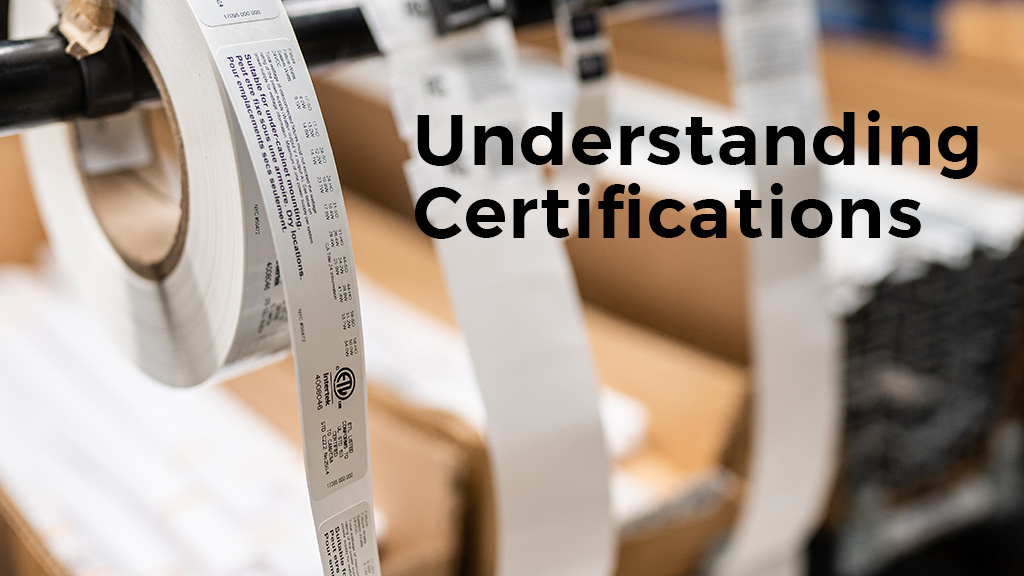ETL or UL Listed
The ETL (Edison Testing Laboratories) Listed mark is proof of product electrical compliance to North American safety standards. Underwriters Laboratories (UL) is a nationally recognized, independent product safety certification organization. The National Electrical Code, as well as laws in the majority of states, requires that lamps and fixtures be tested by a recognized, independent safety-testing agency before they can be legally sold and installed. All fixtures sold by LightCorp are either ETL or UL Listed.
Compliant to UL 153
These requirements cover portable luminaires and subassemblies whose primary function is task or ambient illumination. These products are intended for connection to a nominal 120-volt, 15- or 20-ampere branch circuit, by means of an attachment plug, a mating connector assembly, or a non-integral power supply. These requirements also cover portable luminaires intended to receive power through a USB connection, or power over ethernet (POE) using category 5 (CAT5) or similar cables and connectors.
Compliant to UL 8750
Pertains to the safety standard for Light Emitting Diode (LED) equipment for use
in lighting products. This standard creates a global platform of safety requirements for LED lighting equipment as well as all components used in lighting products employing LED technology.
CSA C22.2
CSA C22.2 is a standard published by the Canadian Standards Association (CSA) pertaining to the safety, performance, and efficiency requirements, as well as installation of electrical equipment in Canada.
- No. 250.4 applies specifically to portable luminaires
- No. 9 applies to luminaires for use in non-hazardous locations, intended for installation on branch circuits not exceeding 600 V
FCC Part 15 Class B
The Federal Communications Commission (FCC) mandates that products be tested to show they comply with US radio frequency emission limits. FCC Part 15 rules cover both unintentional radiators (devices such as computers and TV receivers, all of which may generate radio signals as part of their operation, but aren’t intended to transmit them); and intentional radiators (such as garage door openers, cordless telephones, etc., which depend on deliberate radio signals to perform their jobs). A Class B device is a product marketed for residential or home use.
TAA
The Trade Agreement Act (TAA) requires that a product is manufactured or significantly transformed within any of the TAA countries.
BAA
The Buy American Act (BAA) requires that an end product’s components are comprised of at least 51% US manufactured components based on the total value of all components used within the product.
CEC Title 20
This standard means that the product meets the energy efficiency standards set by the California Energy Commission (CEC) in the State
of California for various products and appliances including lamps.
CE
The CE mark certifies that the products have met health, safety and environmental requirements that ensure consumer and workplace safety within the European Union (EU) countries.

